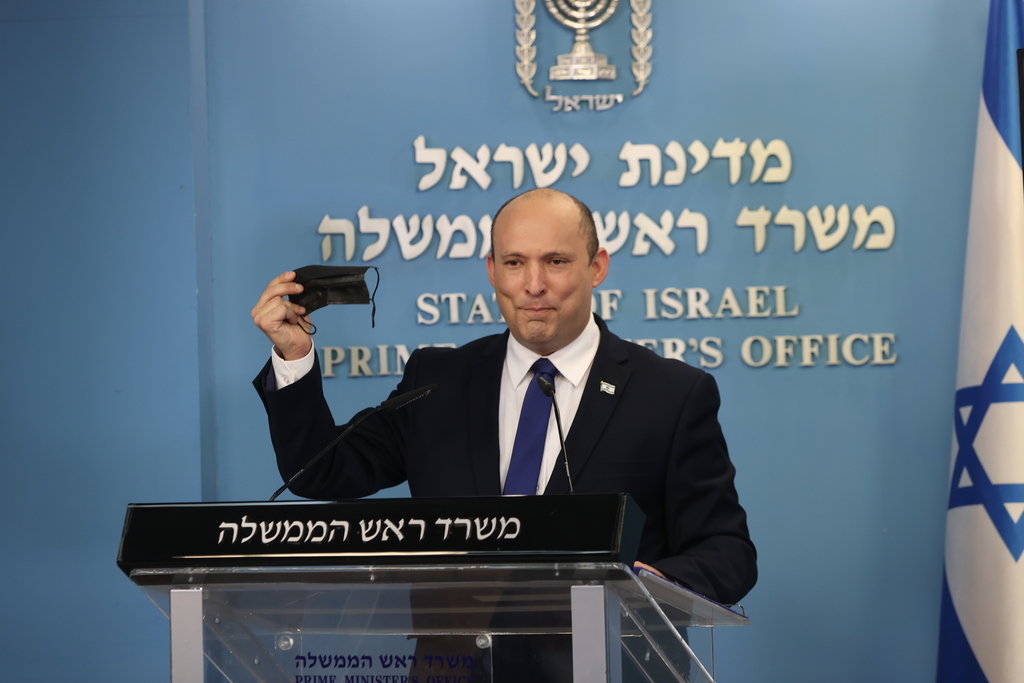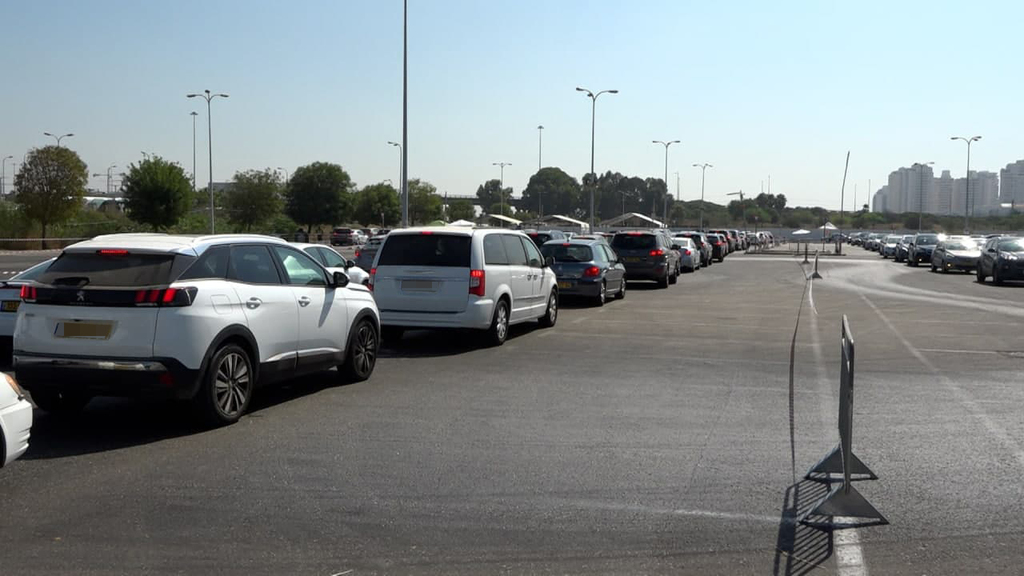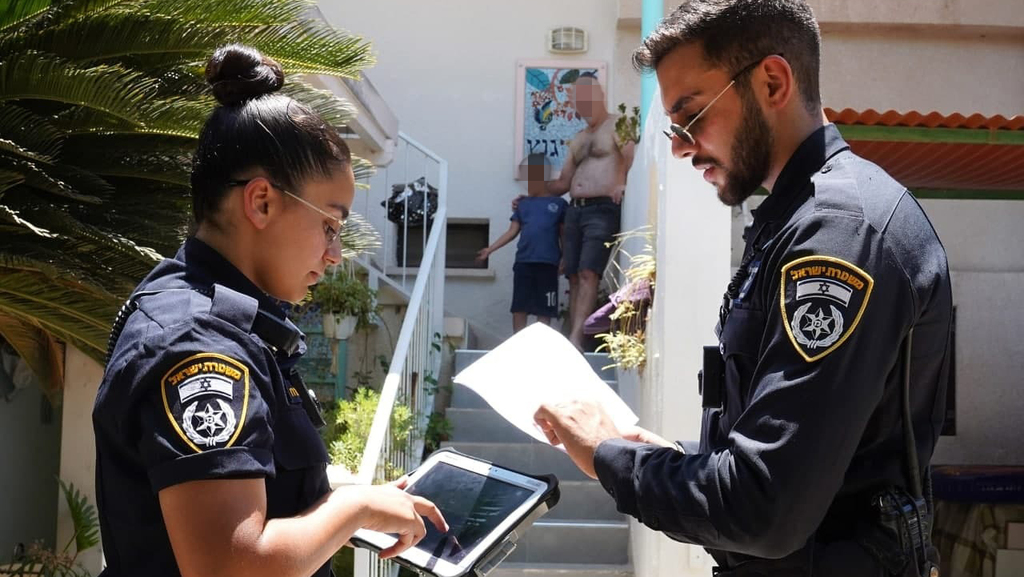Getting your Trinity Audio player ready...
Prime Minister Naftali Bennett on Sunday instructed the government to lay the legal groundwork for digitally monitoring the movements of people in isolation for coronavirus.
Meeting Sunday morning with officials to discuss enforcement of coronavirus mitigation measures, Bennett directed Attorney General Avichai Mandelblit and the Public Security Ministry to prepare for the return of the method of monitoring that which allows police to track people's location via SMS.
The measure was announced by the previous government but was barely used.
3 View gallery


Prime Minister Naftali Bennett discussing new coronavirus measures at a press conference in Jerusalem last week
(Photo: Amit Shabi)
Under the revived measure, a person in quarantine will receive a text message to their phone to which they must reply with a photograph of themselves.
The police then use GPS to triangulate the location from which the image was sent. Anyone who does not respond to the text message will receive a visit from the police.
Coronavirus infection rates continued to rise in Israel over the weekend, with more than 1,000 new cases diagnosed Friday for the first time in months and a sharp increase in the number of serious cases.
There were just 430 new diagnoses on Saturday, although only 30,000 tests were conducted due to Shabbat. The positivity rate, however, reached 1.47% despite the relatively low number of tests.
The Sunday meeting was attended by Mandelblit, Health Minister Nitzan Horowitz, Public Security Minister Omer Barlev, Israel Police Commissioner Kobi Shabtai and came as the Health Ministry said that Friday saw more than 1,000 new cases for the first time in months.
Officials from the Public Security Ministry presented Bennett with a plan for nationwide enforcement of coronavirus regulations, which also includes monitoring on the ground by police and municipal inspectors.
Bennett also called for criminal charges for confirmed coronavirus patients who violate their quarantine, and for the enforcement process to be streamlined - with an emphasis on shortening the period between a fine being issued and its deadline for payment.
The prime minister also asked for social gatherings, in particular weddings, to be the priority for enforcement, given the potential for infection at such events.
"Our goal is to establish sensible guidelines, along with aggressive and effective enforcement against violators," Bennett said at the close of the meeting.
"Anyone who violates the guidelines is endangering their own health and that of the rest of Israel. We will not allow this to happen. The Delta mutation is spreading rapidly all over the world [and] the implementation of the guidelines on the ground is a critical component in handling the pandemic in order to beat the mutation."
Police will soon begin enforcing new regulations for event halls, which stipulates that anyone attending an event at such a location must wear a mask and be vaccinated or recovered from COVID.
Event hall owners whose guests do not adhere to these regulations face a fine of NIS 5,000.
3 View gallery


Israelis queue in their cars at a drive-through coronavirus testing site in Petah Tikva on Sunday
(Photo: Nadav Abas)
Deputy Health Minister Yoav Segalovitz told Ynet on Sunday morning that mitigation enforcement will be stepped up this week and that the government expects event hall owners to be partners in this endeavor.
"There will not be police on every corner," Segalovitz said.
The deputy minister also pointed to the entry of new mutations through Ben-Gurion Airport as the greatest challenge, but vowed that "the country must keep running."


